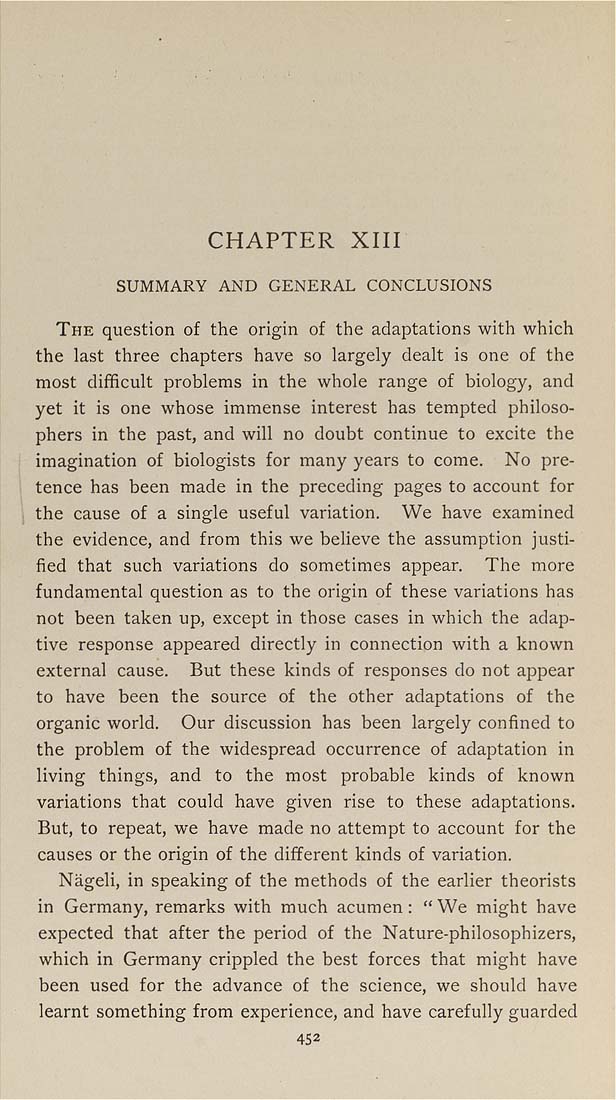CHAPTER XIII
SUMMARY AND GENERAL CONCLUSIONS
The question of the origin of the adaptations with which
the last three chapters have so largely dealt is one of the
most difficult problems in the whole range of biology, and
yet it is one whose immense interest has tempted philoso¬
phers in the past, and will no doubt continue to excite the
imagination of biologists for many years to come. No pre¬
tence has been made in the preceding pages to account for
the cause of a single useful variation. We have examined
the evidence, and from this we believe the assumption justi¬
fied that such variations do sometimes appear. The more
fundamental question as to the origin of these variations has
not been taken up, except in those cases in which the adap¬
tive response appeared directly in connection with a known
external cause. But these kinds of responses do not appear
to have been the source of the other adaptations of the
organic world. Our discussion has been largely confined to
the problem of the widespread occurrence of adaptation in
living things, and to the most probable kinds of known
variations that could have given rise to these adaptations.
But, to repeat, we have made no attempt to account for the
causes or the origin of the different kinds of variation.
Nageli, in speaking of the methods of the earlier theorists
in Germany, remarks with much acumen: "We might have
expected that after the period of the Nature-phflosophizers,
which in Germany crippled the best forces that might have
been used for the advance of the science, we should have
learnt something from experience, and have carefully guarded
452
|








